Are you curious about how actions can turn into ideas? In this post, we’ll explore abstract nouns from verbs—words like movement, decision, and growth that express actions in a more general or emotional way. This beginner-friendly guide will help you understand what abstract nouns are and how they are formed from verbs and give you a handy list to boost your vocabulary and writing skills. Let’s dive in and make learning fun and easy!
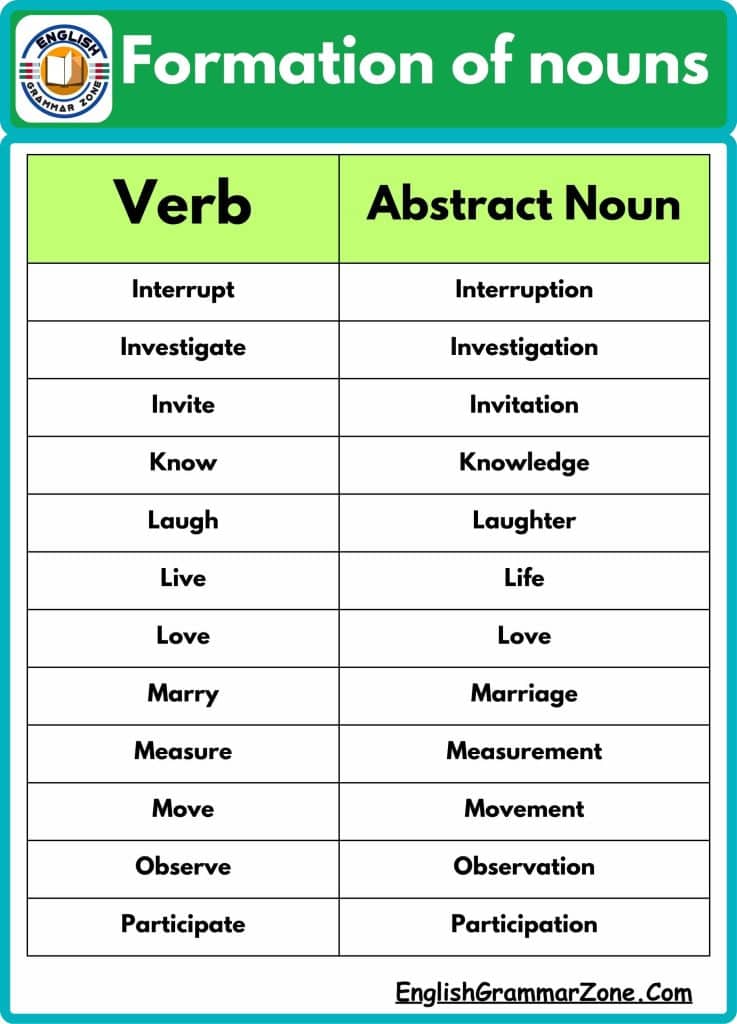
List of 100 Abstract Nouns from Verbs
| Verb | Abstract Noun |
| Achieve | Achievement |
| Admire | Admiration |
| Advise | Advice |
| Agree | Agreement |
| Apologize | Apology |
| Appear | Appearance |
| Approve | Approval |
| Believe | Belief |
| Behave | Behavior |
| Breathe | Breath |
| Celebrate | Celebration |
| Choose | Choice |
| Collect | Collection |
| Communicate | Communication |
| Compare | Comparison |
| Complain | Complaint |
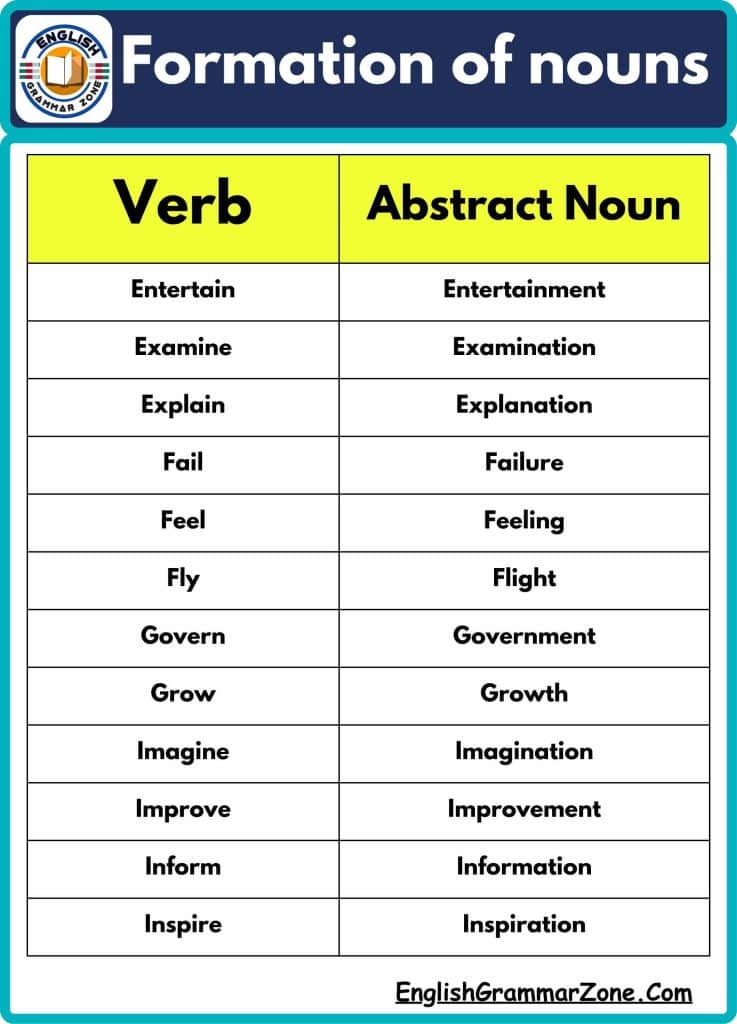
| Conclude | Conclusion |
| Consider | Consideration |
| Decide | Decision |
| Defend | Defense |
| Describe | Description |
| Discover | Discovery |
| Educate | Education |
| Enjoy | Enjoyment |
| Entertain | Entertainment |
| Examine | Examination |
| Explain | Explanation |
| Fail | Failure |
| Feel | Feeling |
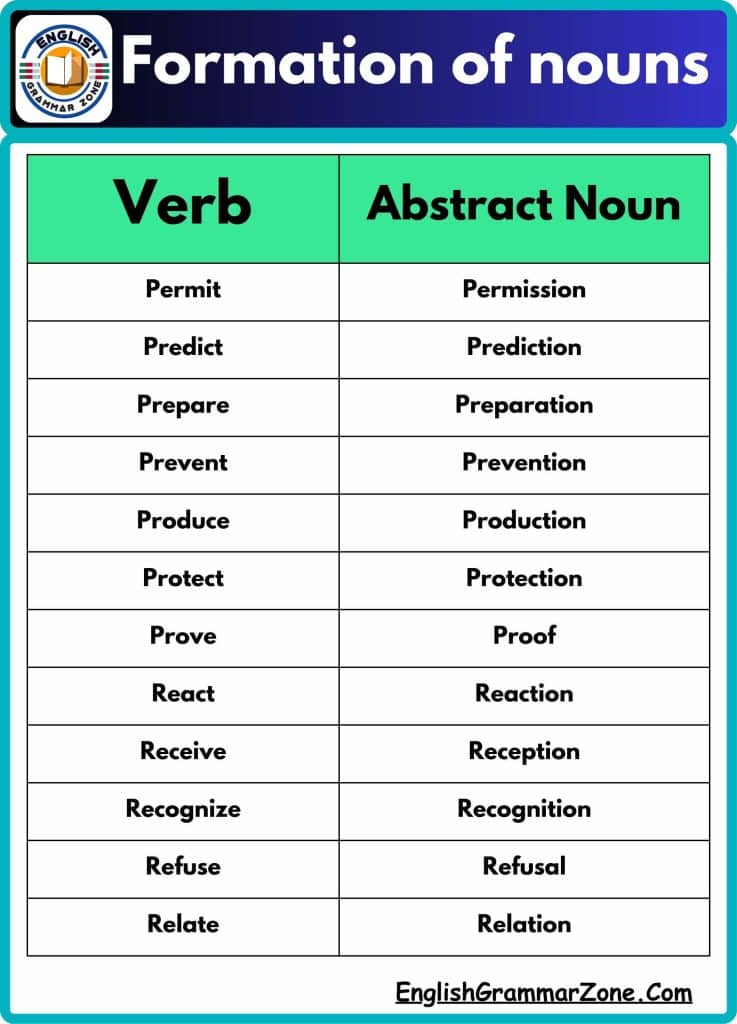
| Fly | Flight |
| Govern | Government |
| Grow | Growth |
| Imagine | Imagination |
| Improve | Improvement |
| Inform | Information |
| Inspire | Inspiration |
| Instruct | Instruction |
| Interrupt | Interruption |
| Investigate | Investigation |
| Invite | Invitation |
| Know | Knowledge |
| Laugh | Laughter |
| Live | Life |
| Love | Love |
| Marry | Marriage |
| Measure | Measurement |
| Move | Movement |
| Observe | Observation |
| Participate | Participation |
| Perform | Performance |
| Permit | Permission |
| Predict | Prediction |
| Prepare | Preparation |
| Prevent | Prevention |
| Produce | Production |
| Protect | Protection |
| Prove | Proof |
| React | Reaction |
| Receive | Reception |
| Recognize | Recognition |
| Refuse | Refusal |
| Relate | Relation |
| Relax | Relaxation |
| Remove | Removal |
| Reside | Residence |
| Resist | Resistance |
| Respond | Response |
| Restore | Restoration |
| Retire | Retirement |
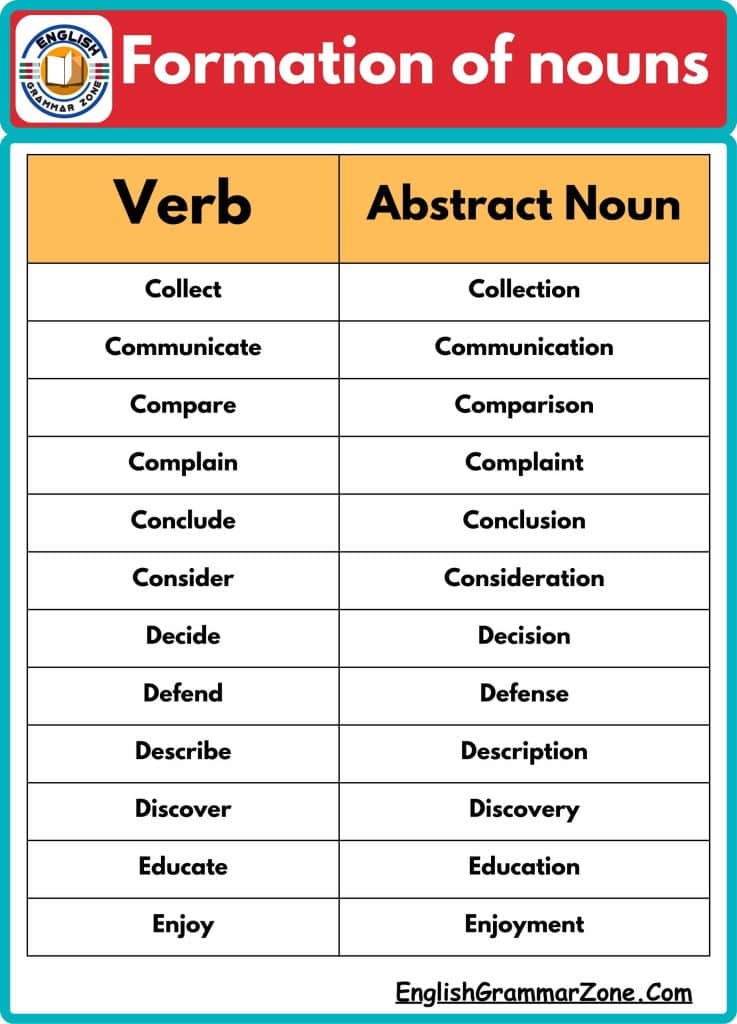
| Select | Selection |
| Sense | Sensation |
| Serve | Service |
| Succeed | Success |
| Suggest | Suggestion |
| Survive | Survival |
| Think | Thought |
| Translate | Translation |
| Treat | Treatment |
| Understand | Understanding |
| Unite | Unity |
| Use | Use |
| Visit | Visit |
| Wait | Waiting |
| Work | Work |
| Achieve | Achievement |
| Approach | Approach |
| Attempt | Attempt |
| Believe | Belief |
| Bring | Bringing |
| Choose | Choice |
| Defend | Defense |
| Describe | Description |
| Explain | Explanation |
| Improve | Improvement |
| Join | Joining |
| Know | Knowledge |
| Listen | Listening |
| Make | Making |
| Meet | Meeting |
| Notice | Noticing |
| Prevent | Prevention |
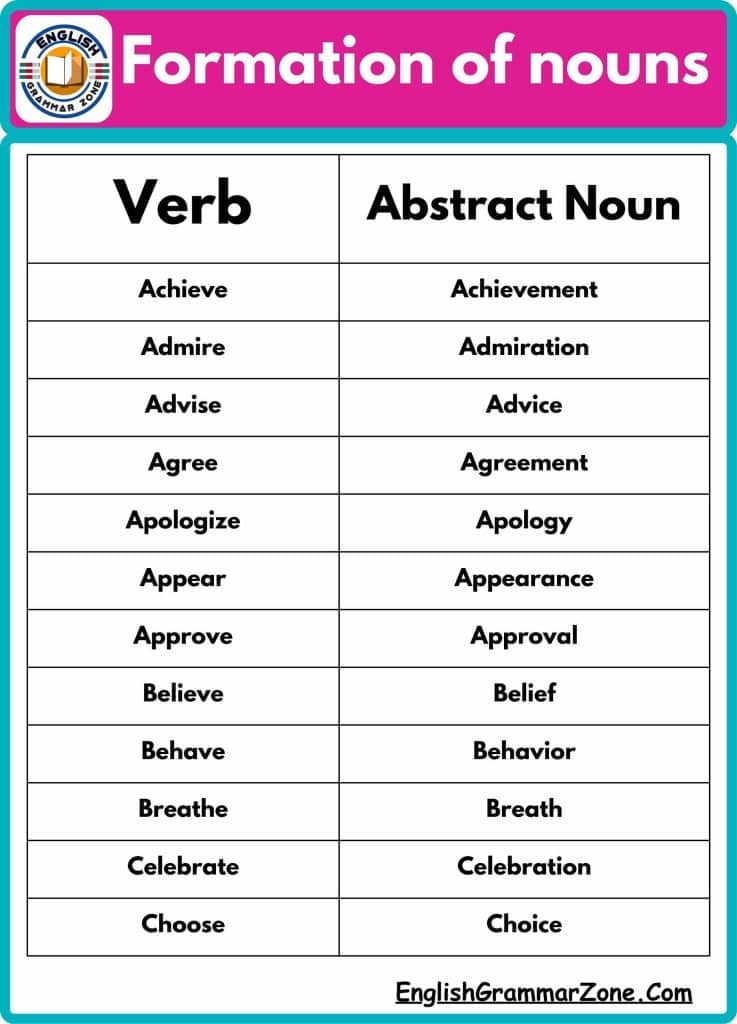
FAQs on Abstract Nouns from Verbs
1. How to form abstract nouns from verbs?
To form abstract nouns from verbs, we usually add suffixes like -ment, -ion, -ance, -al, or -ing to the base verb. For example:
develop → development
decide → decision
perform → performance
These abstract nouns express an idea, action, or state, not something you can see or touch.
2. What are the examples of abstract verbs?
Actually, there’s no such thing as “abstract verbs.” Instead, we talk about abstract nouns formed from verbs. These are nouns that come from action words but represent a concept or idea. For example:
think → thought
grow → growth
move → movement
3. What are abstract noun examples?
Abstract nouns refer to things like emotions, ideas, and qualities. Here are a few examples formed from verbs:
arrive → arrival
enjoy → enjoyment
create → creation
fail → failure
Read More

